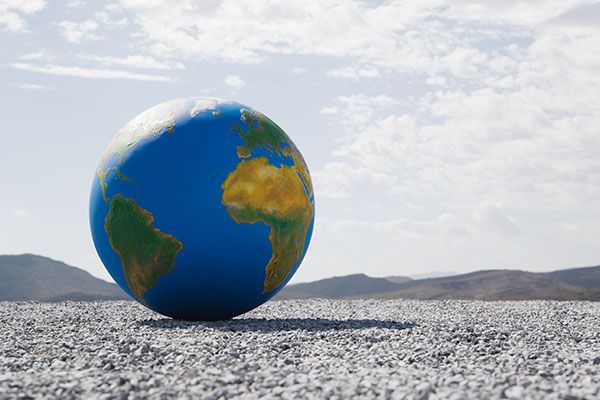Climate change, conflicts, and democracy by Oladosu Adenike
 |
| Photo credit: Martin Barraud |
One of the existential crises of the twenty-first (21st) century is climate change. The relationship between climate change, conflicts, and democracy are complex and intrinsic. It is a known fact that climate change is a threat multiplier that is already increasing food insecurity, water scarcity, and resource control (competition) while posing a serious danger to job security and increasing migration. The effects of global warming on a large scale often affect geopolitical and socio-cultural changes that threaten to destroy fragile institutions – in vulnerable regions like the Horn of Africa and the Lake Chad region. Karl Marx in his conflict theory emphasizes that society is in a state of “perpetual conflict because of competition for limited resources.” He further proposed that because humans are self–interested, societies operate under a perpetual scarcity of resources. This can be seen in the interplay between climate change and conflict.
More so, in what experts on this issue will call “eco-violence,” climate change is one of the leading causes of conflicts, especially in the global south. Also, the intensity of the conflict in Africa from 1970 – 1980 when nomadic Fulani herders moved into areas for arable pastures and water resources. Just like conflicts occurring between non-state actors, nations have also clashed over resource control. These have engulfed nations like Senegal and Mauritania (in 1989), and more recently Egypt, Ethiopia, and Sudan. Unfortunately, limited access to resources such as land and water coupled with an increased threat to job security in their homeland is a clear driving factor for cross-border migration. This is seen in a large number of economic and climate refugees in Europe and America. In many parts of the world, the effects of climate change are often leading to drought, reduced harvest, or destruction of critical infrastructure which ultimately displaces communities thereby exacerbating conflict and weakening democracy. In Afghanistan for example, reduced harvest pushed people into extreme poverty leaving them susceptible to recruitment by armed groups. More than 38 million people in the arid area on the Southern fringe of the Sahel region are food insecure (40% increase from 2021). This is primarily due to climate change-induced conflicts.
Weakened democratic culture due to climate change has hindered farming while increasing cases of banditry in the Northwest of Nigeria is counting on climate change crises. This atrocity has spread into other areas such as Niger, Burkina Faso, and Mali, thereby reducing food production. According to ALIMA, “Nigeria is the hardest hit with 19.5 million people food insecure while Burkina Faso, Niger, Chad, and Mali are badly affected. In a 2019 paper, researchers found that intensifying climate change will likely increase the future risk of violent armed conflict within countries, estimating climate change has influenced between 3% - 20% of armed conflict risk over the past century. According to the research team, if global emission rates are not reduced, the risk of climate-induced violence is fivefold.
70% of the most climate change-vulnerable countries (mostly in Africa) are among the most politically and economically fragile. Unfortunately, half of the 15 countries most susceptible to climate-related risks host an UN-peacekeeping or special political mission. A recent report on climate change-related security risks and peacebuilding in Somalia found that the increasing unpredictability of seasons has effects on herders, farmers, markets, families, and communities. This is the same condition in North Central Nigeria where climate change crises have caused farmer-herdsmen conflicts since the 1980s with thousands of lives lost. A world bank project that within Sub-Saharan Africa alone, climate change will force between (57 – 86) million people to migrate from their homes by 2050. In Nigeria, climate change already has an impact on democratic governance through its effects on food security, conflicts, water scarcity, migration, and natural disasters.
We in the I Lead Climate Initiative movement are fighting for the restoration of Lake Chad and other natural resources in Africa. In furtherance of our mandate to fight against the effects of climate change and conflicts on democracy, we established the disarmament center to cause a positive change in our match towards democratization in the global south. To further our actions on peace and security, we joined the Africa Union conference on “silencing the guns” by lightening the dangerous effects of climate change on armed conflicts. Unfortunately, we in the global south are experiencing a bitter aspect of climate change in armed conflicts. This is already leading to weakening the already fragile state apparatus thereby increasing the risk of violent conflict and making our democracy fail. So let's fight climate change before it fights us.
Oladosu Adenike (oladosuadenike32@gmail.com)
is an ecofeminist, climate justice activist and an ecoreporter.





0 Comments
We are open to listening to your comment.